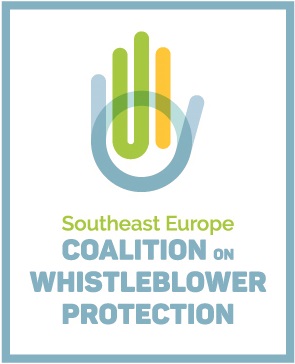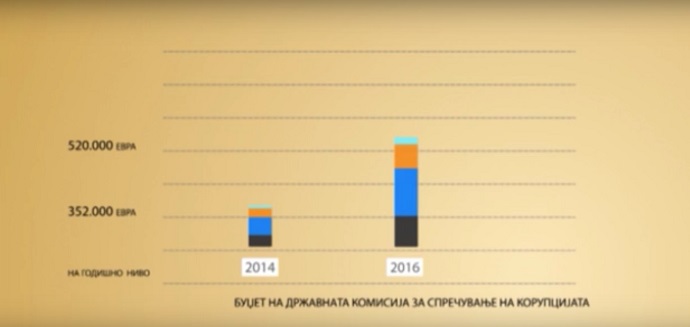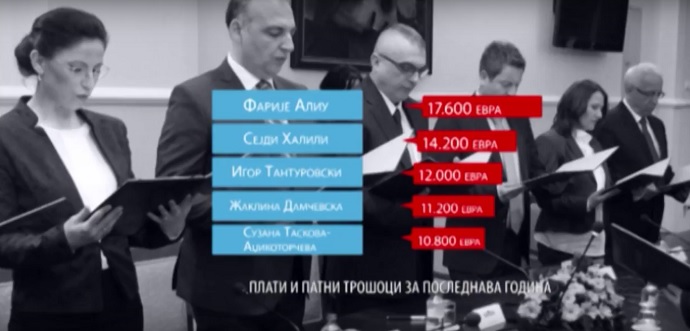After the Parliament passed the Law on Corruption Prevention in 2002 a special commission was formed in the country with a wide range of authorities to combat this negative phenomenon. At that time, when corruption became the biggest threat to democracy, this commission was a hope that this social evil will finally start clearing.
“Do not forget, it was one of the first anti-corruption institutions in the region and beyond. We served as a model. I know that I represented the model and the way of work of Anti-corruption Commission in the Council of Europe, where the basic principles were created about what must be met for a successful anti-corruption institution to exist”, said Dr. Sladjana Taseva, first president of the State Commission for Prevention of Corruption (SCPC).
14 years later this Commission seems to have lost the meaning of its existence. Has it transformed itself from a body to fight corruption into its’ silent observer?
THE SECRECY GOES ALONG WITH CORRUPTION
“I would like to ask you to close this subject once and for all”, said Goran Milenkov, former president of the SCPC in a press conference held several months ago.
With emotional and convincing speech, former president of the State Commission for Prevention of Corruption and its present member Goran Milenkov tried to cover up the assets of the former Prime Minister Nikola Gruevski. Rather than investigate where the money came from to Gruevski’s accounts and his mother’s apartments, he decided to discourage journalists in their attempts to demand transparency and accountability from institutions.
In recent years the activity of SCPC has been steadily declining. Apart from some marginal cases of conflict of interests, the Commission has not managed to launch initiatives for some bigger corruption cases.
“The attitude of the Commission towards the current government today is more than subservient, they do not control the government and also work for it, which is worse”, said Dragan Malinovski, member of the first team of SCPC.
We asked the former and current president of the State Commission for Prevention of Corruption for a statement, but they were not available. Instead of transparency, silence and secrecy continues to be their way of functioning.
“Secrecy does not go together with the fight against corruption. Secrecy goes along with corruption. Secrecy goes along with what you want to hide. When I studied organized crime in the late 90s, the rule of Omertà or prohibition of speech was considered a rule that most suited the mafia”, said Taseva.
Although the efficacy was constantly falling, the Commission’s budget was gradually increasing. Center for Investigative Journalism SCOOP Macedonia using the Law on Free Access to Public Information came to documents showing that the State Commission for Prevention of Corruption’s budget has exceeded half a million Euros people’s money.
MUCH MONEY, POOR RESULT
With Goran Milenkov the Commission’s budget grew from 352,000 Euros in 2014 to 520,000 Euros in 2016. The number of employees increased from 24 in 2014 to 31 in 2016.
Goran Milenkov, previous president of the State Commission for Prevention of Corruption in less than a year received nearly 12,500 Euros from the state budget of RM to combat corruption.
Current president Igor Tanturovski has received nearly 12,000 Euros, Zaklina Damcevska 11,200 Euros, Suzana Taskova Adzhikotorcheva 10,800 Euros and Najdo Spasevski 11.300 Euros. Farije Aliu and Sejdi Halili have received most salaries and travel expenses, 17,600 Euros and 14.200 Euros in less than year.
While Milenkov, the ex-president of the Commission, did not respond to our calls to explain the work of this body, his former colleagues say he has turned the Commission into a corruption protector.
“They put such protection on everything controversial and apparently illegal behavior, that it turns into antipode, contrary to the anticorruption commission, it turns into corruption commission. A commission that protects corruption, rather than a commission to fight corruption”, said Taseva.
“The fact is that in the past period, with its behavior, the Anti-Corruption Commission is an accomplice in many deviant actions in the Republic of Macedonia”, said Malinovski.
This team of the State Commission for Prevention of Corruption has filed only one charge since 2015. It is the least in the region. Examples of countries in the region show the slowdown of fight against corruption in Macedonia.
Serbian anti-corruption agency has filed 183 charges, Bulgarian 116, Croatian 458 charges and Montenegrin commission has filed 89 charges.
“Macedonian Commission was established in 2002, Slovenian in 2003, Serbian in 2010 and even in 2011 it began to work effectively. In the period of early existence, our anti-corruption commission was a leader in Southeast Europe and very successful“, said Taseva.
The Commission’s poor performance is also referred in the latest EU report on the progress of Macedonia and the following is stated:
In the previous year there was no progress on the identified unsolved issues. Corruption remains widespread.
Addressing the shortcomings highlighted below, the country should pay attention and show political will to fight corruption in the form of autonomous and effective measures through the bodies for law enforcement and supervisory authorities, especially the State Commission for Prevention of Corruption.
And while paid members of the State Commission for Prevention of Corruption protect the officials’ property from the public, the country is increasingly drowning in corruption.
“The story is supported by CIN SCOOP-Macedonia within the NED project ‘Raising Awarness About Corruption through investigative reporting”







